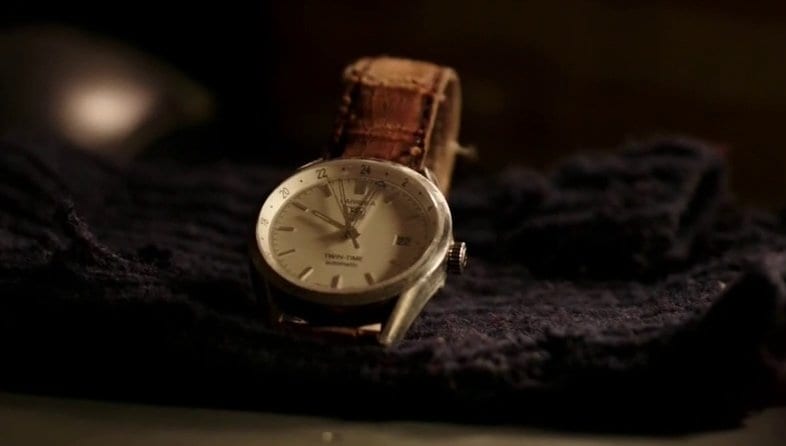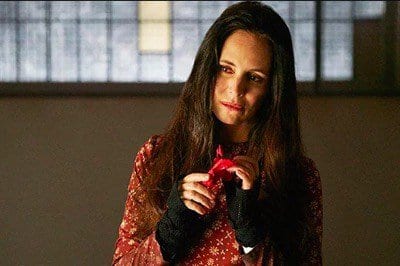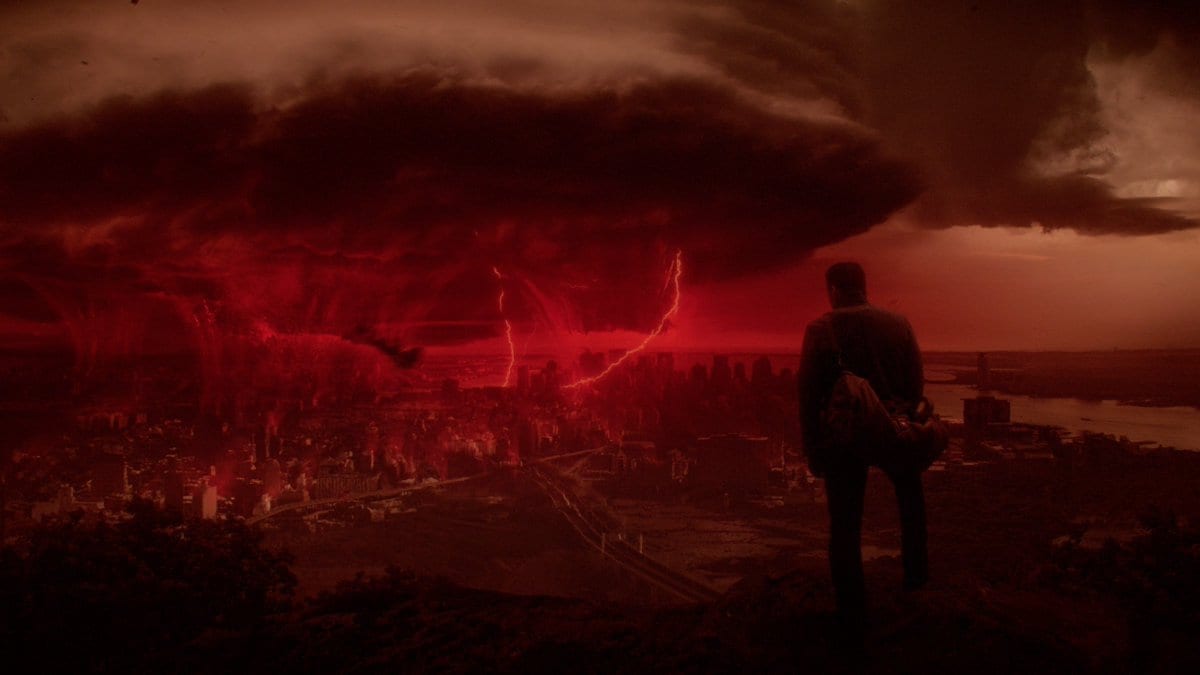12 Monkeys has now finished its series run! It’s been four great years of television, and emotionally exhausting, but it’s definitely been worth it. This final analysis will cover the finale of the series.
*Spoilers for Neon Genesis Evangelion included in this analysis*
“I don’t have forever to promise you. The most I can give you is this moment. But it’s yours if you’ll take it.” ~ James Cole
“Look at the sun. You know why it’s so beautiful? ‘Cause it sets.”~ James Cole
“Please, Cole, remember. Death can be undone. Love, cannot.” ~ Cassandra Railly
“The more you are focused on time — past and future — the more you miss the Now, the most precious thing there is.” ~ Eckhart Tolle, The Power of Now
“You can get lost in the past, and worry about the future… but hey, now is right here. You can pick up the phone and tell someone you love them. Or make time for them right now. Because someday you simply won’t be able to. My father passed away halfway into making the series. That kind of thing really impresses upon you the importance of time. Someone is around now who you can talk to and tell them what they mean to you. Don’t waste now!”~ Terry Matalas
“See you soon.” ~ Cole and Cassie
The following quotes by Cole bookend the series of 12 Monkeys:
“Where are you right now? Somewhere warm? Safe? Next to someone you love? Now what if all that was gone, and the only thing you could do is survive? You would, right? You’d try. You’d do things. Horrible things. Until you lose that last thing you have left. Yourself. But what if you could take it back? All of it? A reset switch? You’d hit it right? You’d have to.”
“Where are you right now? Somewhere warm? Safe? Next to someone you love? Someday, all that will be gone. Time passes, how it’s meant to. All that matters is now. Happily…ever…now.”
They mirror each other almost perfectly, yet they portray very different attitudes. Cole’s language in the former quote betrays a guilt-ridden conscience, one that is obsessed with the past and is attempting to outrun it or in this case, erase it. Cole has lost himself in the sins he has committed, and since he can’t forgive himself in the present, he’s stuck focusing on the past, both metaphorically, and soon, literally. Ironically, his mind is also stuck in the future, as his “reset switch” a.k.a. Project Splinter might eventually give him a chance to fundamentally alter his existence.

The latter quote adopts a much more positive outlook. Cole is not focused on a future possibility for redemption, or on his past sins. He is living entirely in the present. In forgiving himself, he has allowed himself to truly value the moments that he will share with Cassie in the foreseeable future until either she or he falls victim to the passing of time (Of course, there’s another interpretation, but I’ll elaborate on that later). But why has Cole suddenly been able to forgive himself?
I suppose now would be a good time to point out what most of you have probably already noticed and what I should have been privy to a lot sooner. In all respects, Cole is the Christ figure of 12 Monkeys’ narrative. It isn’t very difficult to notice the first hint, Cole’s initials are J.C. James Cole. Jesus Christ. That’s just a perfunctory detail, however. James’ role as Time’s sacrificial lamb is what solidifies the archetype. In the Christian myth, Christ is sinless, and yet, at his crucifixion, he shoulders the sins of the entire human race. With his death and resurrection, the sins of mankind are absolved. Cole is no innocent, but he carries the entire weight of 7 billion people’s deaths on his back. Additionally, all the misfortunes and tragic occurrences throughout the time loop only serve to add to that already extremely heavy load. With Cole’s erased existence comes peace and stability to the universe and all its inhabitants. Then, of course, Cole is resurrected.
Cole’s resurrection is spurred on by Katarina’s interference with the Time Stream but is ultimately allowed by Time itself. Viewers finally have an answer to the nature of Time. Yes, it is conscious. So conscious, in fact, that it wilfully allows Cole to be resurrected even though, technically, his birth never occurred in this new reality. Kind of similar to the virgin conception: Time is Cole’s Heavenly Father, and it miraculously births Cole into the new timeline because it “owes him one.” Cue actual wink by Time/Universe/God.
Is there an additional reason for why this show’s version of God allows Jones to play His role one last time without repercussions in order to ensure her “son’s” survival? I suspect it has to do with motive and the nature of the relationship between Cole and Cassie. After all the other players are sent back home to their respective timelines, our favorite couple are the final ones left. Cole says goodbye to Cassie as he gives her back her watch:
“I remember the first night we met. I was waiting in your car. I watched you walk across the parking lot, on your phone, smiling. I was already in love with you.”
“Oh..”
“I remember thinking, ‘I’m about to ruin her life.'”
“No, no you didn’t.”
“Now, I get to give it back to you. You’ll be a doctor again. You’ll be able to stay out in the sun. You don’t have to look over your shoulder anymore. You and me, we didn’t get a lot of time, but we lived a lifetime together.”
“I love you.”
Then we hear the full content of Cassie’s original transmission, the initial catalyst for the entire situation:
“My name is Dr. Cassandra Railly of the Maryland CDC. We’re working on containment of the Kalavirus at the CDC station in Baltimore. Jones, if you can hear me, the plague starts with Leland Goines. Security Designation: Frost. But we are the true architects of the plague. The Army of the 12 Monkeys are watching me. I’m running out of time. Cole, Remember this. Death can be undone. Love, cannot.”
This final line is a repeat of Lillian’s line to James in the season 2 finale. As I predicted in my earlier analyses, Love does indeed turn out to be the ultimate force in the universe. All of the characters who return to their original timelines regain their memories of Cole and the rest of their friends, even after the timeline has been rewritten. Of course, the one reason for this is the love that all these characters share for each other. Love overpowers the causality of time itself.

Here’s hoping that the universe(s) these characters share is not one of fabrication, with time unending and unmoving. The final shot of the red leaf gives pause. In my earlier analyses, I likened the Red Forest to a return to a primordial state of being, erasing all distinctions between mankind and ceasing to establish personalities due to the static nature of time. Before Cassie prevents (or does not prevent) the Red Forest’s engulfing of the Earth, Cole makes one final heartfelt plea:
“Cassie! Please. You can end this.”
“We can have forever.”
“Then don’t. You and me, we can go, we can hide in that house forever. We can raise a son who never dies. We can have it all. Until it means nothing because it never ends. We’ll be together forever, until we can’t even remember what it feels like to find each other again. After an hour, a minute, a second apart. I’ll go with you, Cassie. We can have forever, or we can have now…with an ending that makes it real. Please… give us an ending.
If Cassie did indeed appreciate Cole’s final plea to give their love story a meaning, then the world is saved and everyone is living happily once again. If she gave in, however, then we must reconsider the nature of The Red Forest. Because time *does* seem to be moving forward in this new timeline. I mentioned in my notes once before that the concept of The Red Forest reminded me of S.E.E.L.E.S’s plans in the anime, Neon Genesis Evangelion. The villains’ primary goal in the show was to unite the souls of all mankind into one conscious being, returning everyone to their primordial state into a kind of paradise of their own choosing in which they would never feel pain again. This state would be never-ending and would never involve any hardship. Instead, it would create a perfect world for them, letting them live out their greatest fantasies.
Is this what is truly happening in these final scenes? Are the scenes of Cole’s closest companions merely projections of Cassie or Cole’s fantasy? Is Cole or Cassie a projection? And have we lost a viewpoint that is anywhere close to objective reality once Cassie permits The Red Forest to engulf the earth?
According to Showrunner Terry Matalas, this is a possible interpretation. From the IGN interview:
I’m sure there will be tons of speculation about the final shot of the red leaf on the tree outside Cole and Cassie’s reunion. Did Cole make it to the new timeline, or is he in his own personal Red Forest?
Well, what do you think?
I’d like to hope he made it back to the real timeline.
The right ending is the one you choose. There’s two ways of looking at it. One is that they save the world, Jones saved Cole and he was able to reunite with Cassie. The other way of looking at it — I suppose, even though I personally don’t look at it this way — would be that we never really saw Cassie turn off the console on Titan. So is this happy ending someone’s personal Red Forest? That could be up to you, and you could make a solid argument for it.
Matalas makes a good point. And my own viewpoint has wavered back and forth between these two possible conclusions, although I was completely “pro-reality” on the first view. However, I’d like to examine this from a thematic perspective.

If Cassie or Cole had been swallowed up by The Red Forest, then they have essentially escaped into a world where nothing means anything, as Cole points out in his speech to Cassie. Not only will they forget the true value of their relationship, they will also never face hardship or pain in this fantasy world. Of what value is their joy then? They will forget it ever had any substance, for they will have nothing to compare it to. This type of ending could be read as an examination of the true nature of love. Whether that be an implication that love is not all powerful after all, or that it is an illusion. Looking back through the series, the focus on romantic, familial, and friendship forms of love has been immense. There has even been a time before where Cole and Cassie’s love survived the altering of a timeline. Even the product of their love, their unborn child, Athan, retained his existence in the timeline shift. Would a such an ending support these events? No, it would rip apart the thematic cohesion of the television series as a whole, rendering one of its major themes a complete lie.
12 Monkeys is an excellent piece of television, and I would be highly surprised if, during such a thematic analysis, it fell apart so easily. So although ending the note on a darker note is intriguing, I don’t want to have a “dark soul” as Matalas posits in another one of his interviews. I’m going to struggle towards the light and stick with my first impression, even if today’s type of shows have prepared me for the worst. Although, God, I can’t seem to get the more depressing one out of my head. Anyways, I’m sticking with Matalas’ interpretation.
Well, in this world, at least, 12 Monkeys has come to an end. And since it ended, it does carry meaning, a huge meaning for me in fact. I have enjoyed analyzing each batch of episodes over the past few weeks. Thank you all for reading!
Notes and Observations:
- Both Ramse and Deacon came back for one last rodeo! Cue Don’t You (Forget about Me)!
- Did not expect Dirty Dancing’s theme song to make an appearance, especially during a suicidal gun shootout.
- Olivia is Patient Zero! I wish I could have had it right at least once…Badass death, by the way.
- I seriously teared up when Cole gave Cassie his father’s ring.
- I also teared up when Cassie told Deacon he was a good man.
- I teared up way too much!
- So that’s why Deacon gave Jennifer his knife!
- Tell me your favorite quote. Mine is “Death can be undone. Love cannot.”

